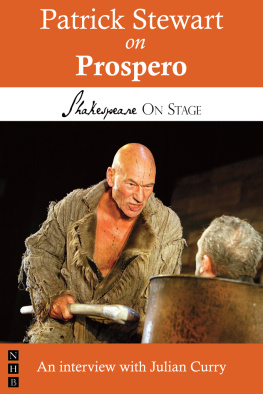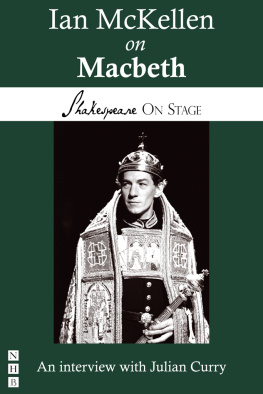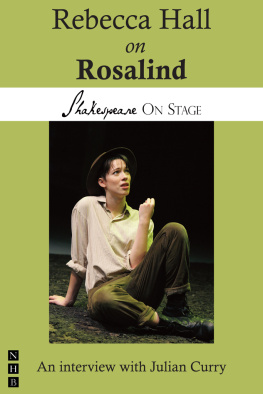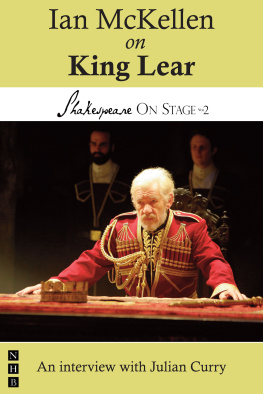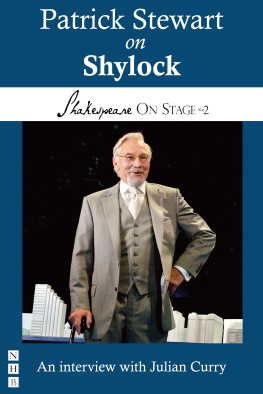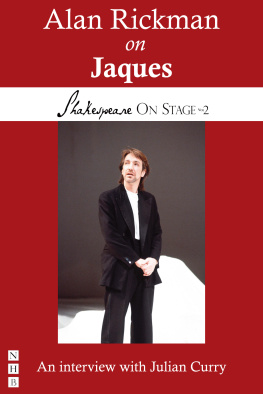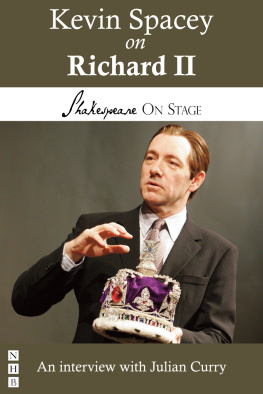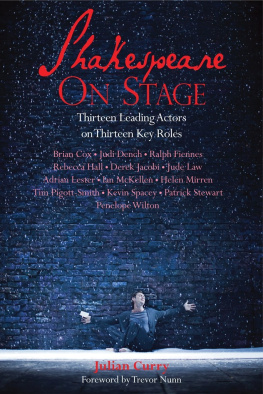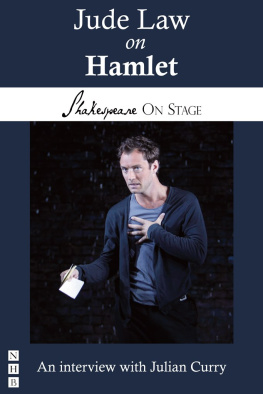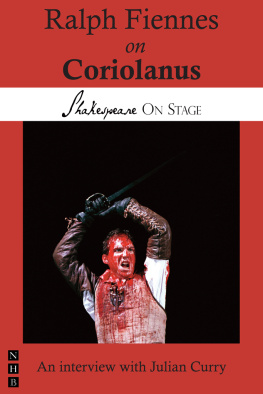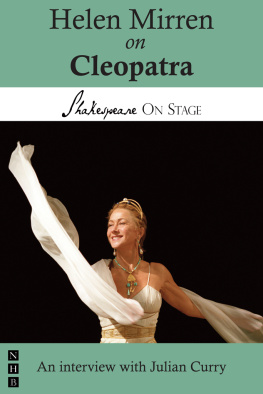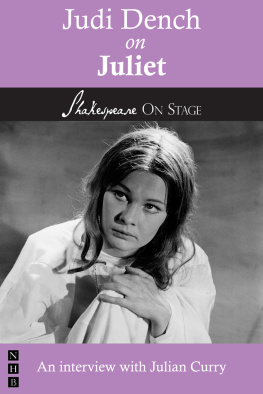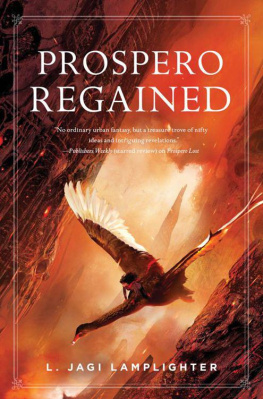We are such stuff
As dreams are made on; and our little life
Is rounded with a sleep.
The Tempest has never been my favourite Shakespeare play. Ive admired different productions this way and that, but it has seldom previously grabbed my entrails. However, this was a staging with a difference. An opening radio gale warning led to a stunningly choreographed storm scene and shipwreck. The desert island setting was brazenly perverse, revealing a frozen polar wasteland. An unnerving soundtrack was suggestive of reinforced concrete. The airy spirit Ariel was rivetingly creepy, labelled Beckettian by several critics. A gale of fresh air blew through the play. At the eye of this tempest was Patrick Stewarts highly energised, fast and furious Prospero.
I used to play football with Patrick when we were at the RSC together. He was our right back, and God help the opposing left-winger. He went into tackles like a combine harvester. So it was no surprise to see the power and rage he brought to Prospero. Off stage and pitch, however, hes jovial and delightful, and spoke eloquently about this highly original production. We talked in June 2008 in the kitchen of his Oxfordshire home during his run at Stratford, doubling Claudius and the Ghost in Hamlet.
Julian Curry: Where and when did you play Prospero?
Patrick Stewart: I have a long and colourful history with The Tempest. Ive been in it six times. I played Caliban on the radio with Paul Scofield as Prospero. I played Stephano at Stratford, and Ive played Prospero four times. The first was as a schoolboy. I used to go on residential drama courses organised by the very enlightened West Riding County Council, where they had professional teachers. When I was fifteen, we did a somewhat cut-down version of The Tempest, but still a two-hour show, and I played Prospero. Somewhere in the files theres a photograph of me in a long velvet gown and a bad beard, and a staff.
And lines painted all over your face?
Exactly. And my recollection is that I was wonderful. Fearless, of course, carefree. Simply learnt it and bellowed it out. My next experience of it must have been Stephano at Stratford, which is a great role, a really great role. Each time I played Prospero Ive thought God, I wouldnt half mind playing Stephano tonight! That was Ian Richardsons Prospero. Then I went to Oberlin College in Ohio and spent two months teaching as an artist-in-residence. One of the things I did was play Prospero in a full-scale production. It was a very, very bad production, with a mixture of some Equity actors and a lot of students. But it was there that I really began to form a sense of how I would like to play the role, and who I thought this person was. I was then approached, to my astonishment, by George C. Wolfe when he was running the Public Theatre in New York, to play it in the Delacorte in the Park. This was to be his first ever production of a Shakespeare play. Hed never done any Shakespeare before, and knew nothing about Shakespeare at all.
But luckily you did.
Yes. He assembled a really wonderful cast. And it was an outstanding production. Very bold, very colourful, multiracial, with a sort of Cuban feel to it. There was a fiesta air about it. The masque, I remember, had goddesses on stilts, huge stilts, in outlandish kind of carnival dress, and we were in a vast sandpit. The Delacorte, the open-air theatre in Central Park, is a big circle, an empty space. They filled it with sand, which stuck to your feet when it rained, and it would build up like snow, so you had pads of sand under your bare feet. But that was the first time I got an opportunity to really explore my feelings about this character. Im not sure when I did Caliban on the radio, but I remember sitting back and listening to Scofield and thinking he sounded wonderful, rather mellow, but resonant. Id never played Prospero in England, at least as a grown-up. So when I came back to the RSC three years ago to be in Antony and Cleopatra, I started a little campaign to do The Tempest as well. And they agreed. They said theres this young chap Rupert Goold whos been running the theatre in Northampton. Would I like to meet him, and see if we get on, because hes interested in directing it. And it was one of the grandest and the most fortuitous meetings ever. We worked together back-to-back, because Macbeth was the next thing I did after The Tempest.
So this one is a distillate of your fifty or so years of tempestuous experience.
It is. And I think it has brought closure, at last, to my relationship with the play.
Somebody described the text as a rump of very chewy Shakespeare. Its an odd text, isnt it. You probably know it so well now that it doesnt seem odd to you, but I think a lot of people find it quite difficult.
Well, its as late a play as could be. And theyre all tricky. They dont have the fluency and the ease of language of the middle period, even a play like Hamlet. Certainly not like Macbeth. But I think, for me, the fact that I have known it for more than all my career has made me very comfortable with it. What I do know is that from a technical point of view you need a huge amount of breath to play Prospero. I found that it was not a text that you could break up or modernise or make too spontaneous, that it needs to flow, largely to make the sense of it work. You need two or three uninterrupted lines very often, to get the whole significance of an expression out. The thoughts are often somewhat convoluted, a bit like

